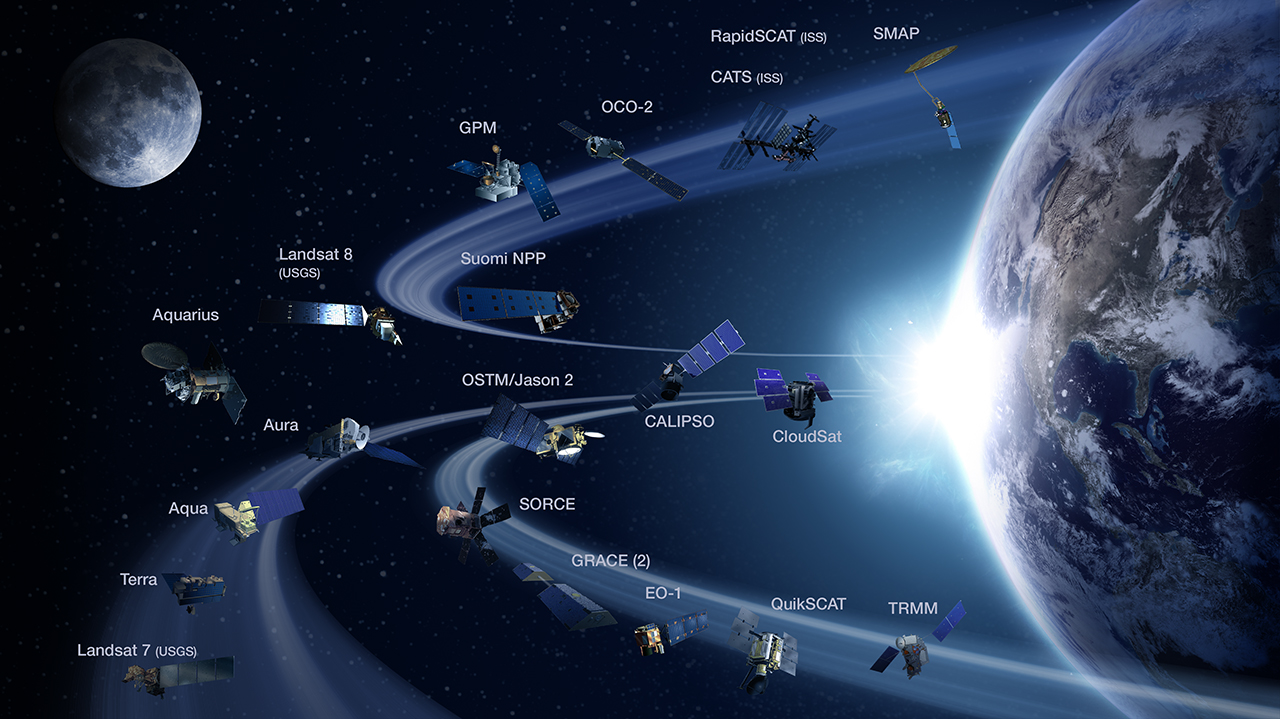NASA Earth Science on:
[Wikipedia]
[Google]
[Amazon]

 NASA Earth Science, formerly called NASA Earth Science Enterprise (ESE) and Mission To Planet Earth (MTPE), is a
NASA Earth Science, formerly called NASA Earth Science Enterprise (ESE) and Mission To Planet Earth (MTPE), is a

 NASA Earth Science, formerly called NASA Earth Science Enterprise (ESE) and Mission To Planet Earth (MTPE), is a
NASA Earth Science, formerly called NASA Earth Science Enterprise (ESE) and Mission To Planet Earth (MTPE), is a NASA
The National Aeronautics and Space Administration (NASA ) is an independent agencies of the United States government, independent agency of the federal government of the United States, US federal government responsible for the United States ...
research program "to develop a scientific understanding of the Earth
Earth is the third planet from the Sun and the only astronomical object known to Planetary habitability, harbor life. This is enabled by Earth being an ocean world, the only one in the Solar System sustaining liquid surface water. Almost all ...
system and its response to natural and human-induced changes to enable improved prediction of climate, weather, and natural hazards for present and future generations".
Its director was Michael Freilich (2006–2019).
NASA supports research in the Earth sciences
Earth science or geoscience includes all fields of natural science related to the planet Earth. This is a branch of science dealing with the physical, chemical, and biological complex constitutions and synergistic linkages of Earth's four spheres ...
and, as part of its Earth Observing System
The Earth Observing System (EOS) is a program of NASA comprising a series of artificial satellite missions and scientific instruments in Earth orbit designed for long-term global observations of the land surface, biosphere, earth's atmosphere, at ...
(EOS), launches and maintains Earth observing satellites to monitor the state of the climate, atmospheric chemistry, ocean and land ecosystems. It was a NASA scientist, Dr. James Hansen
James Edward Hansen (born March 29, 1941) is an American climatologist. He is an adjunct professor directing the Program on Climate Science, Awareness and Solutions of the The Earth Institute, Earth Institute at Columbia University. He is best ...
, who first alerted the world to the dangers of global warming
Present-day climate change includes both global warming—the ongoing increase in global average temperature—and its wider effects on Earth's climate system. Climate change in a broader sense also includes previous long-term changes ...
due to greenhouse gases
Greenhouse gases (GHGs) are the gases in the atmosphere that raise the surface temperature of planets such as the Earth. Unlike other gases, greenhouse gases absorb the radiations that a planet emits, resulting in the greenhouse effect. T ...
emitted by human burning of fossil fuels
A fossil fuel is a flammable carbon compound- or hydrocarbon-containing material formed naturally in the Earth's crust from the buried remains of prehistoric organisms (animals, plants or microplanktons), a process that occurs within geologica ...
. Earth Science research also provides the foundations of understanding for the search for extraterrestrial life
Extraterrestrial life, or alien life (colloquially, aliens), is life that originates from another world rather than on Earth. No extraterrestrial life has yet been scientifically conclusively detected. Such life might range from simple forms ...
through the NASA Astrobiology Institute (NAI), in which the focus is often on the extreme conditions for life to survive.
References
NASA programs Earth observation projects Earth sciences {{NASA-stub